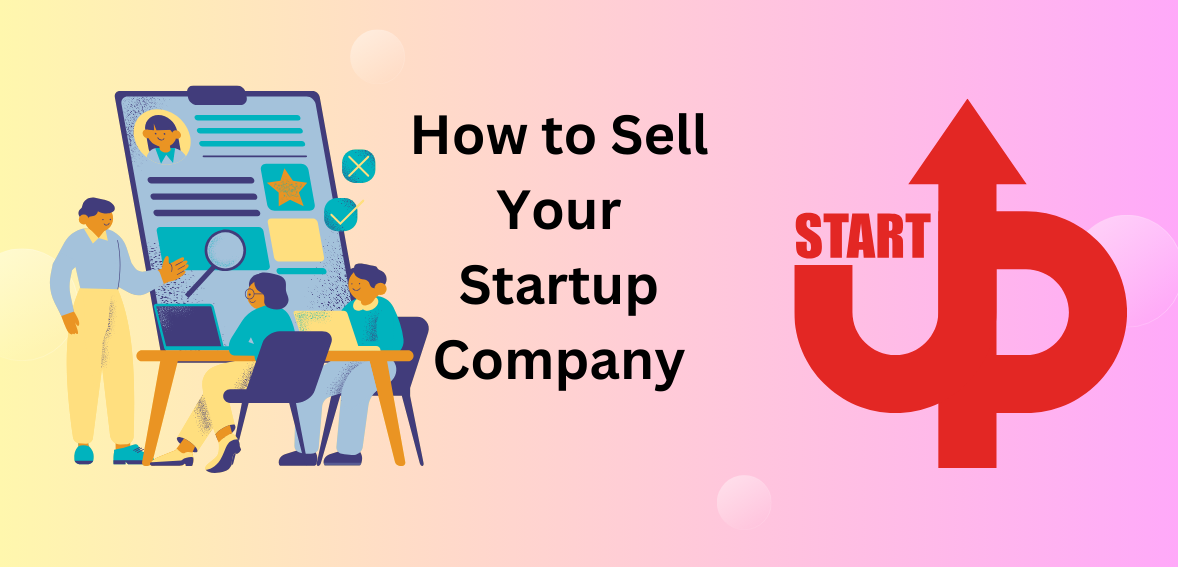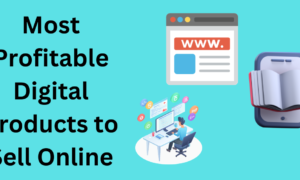Thinking about selling your startup company? It’s a big decision, but with the right strategies and approach, you can successfully navigate the complex world of mergers and acquisitions. Selling your startup is not just about finding a buyer; it’s about maximizing value, ensuring a smooth transition, and securing the future for your employees and customers. In this blog post, we will dive into the essential steps to sell your startup company effectively. From preparing your business for sale to negotiating with potential buyers, we’ve got you covered every step of the way. Let’s get started on this exciting journey towards selling your startup!
The Basics of Selling Your Startup
Selling your startup is a significant milestone in your entrepreneurial journey. Before diving into the process, it’s crucial to understand the basics of selling a company. First and foremost, you need to assess the market conditions and determine if it’s the right time to sell. Conduct thorough research on potential buyers, industry trends, and valuations.
Having a clear understanding of your company’s financials is essential. Potential buyers will scrutinize your revenue streams, expenses, and projections meticulously. Make sure all documentation is organized and up-to-date.
Additionally, consider seeking advice from experienced professionals such as business brokers or M&A advisors who can guide you through the complexities of selling a startup. Remember that patience is key during this process; finding the right buyer may take time but ultimately pays off in maximizing value for your hard work and dedication.
The Importance of Having a Solid Business Plan
Having a solid business plan is like having a roadmap for your startup. It not only outlines your goals and objectives but also helps you navigate the unpredictable terrain of entrepreneurship. A well-thought-out business plan can be the difference between success and failure in selling your company.
Investors and potential buyers will look at your business plan to understand the unique value proposition of your startup. It showcases how you have positioned your company in the market, what sets you apart from competitors, and how you plan to sustain growth.
A comprehensive business plan shows that you have a clear vision for the future of your company. It demonstrates that you have considered various scenarios, identified potential risks, and outlined strategies to mitigate them. This level of preparedness instills confidence in buyers about the stability and potential of your startup.
In essence, a solid business plan serves as a strategic tool not just for running your company but also for presenting it in the best light when it comes time to sell. So, investing time and effort into crafting a robust business plan is crucial for maximizing the value of your startup during its sale process.
Preparing Your Company for Sale
When preparing your startup for sale, it’s crucial to ensure all aspects of your business are in top shape. Start by organizing your financial records meticulously. Potential buyers will want to see clear and accurate financial statements.
Evaluate your company’s strengths and weaknesses objectively. Identify areas that may need improvement before putting your business on the market. This could involve streamlining operations, enhancing customer relationships, or boosting profitability.
Consider the value proposition of your product or service. Highlight what makes your startup unique and attractive to potential buyers. Showcase any intellectual property or proprietary technology that sets you apart from competitors.
Engage with a professional advisor who specializes in mergers and acquisitions. They can provide valuable guidance throughout the selling process, from valuation to negotiations. Being well-prepared will increase the likelihood of a successful sale when the time comes to find the right buyer for your startup company.
Finding the Right Buyer
Finding the right buyer for your startup is a crucial step in the selling process. It’s essential to identify potential buyers who align with your company’s values and vision. Look for buyers who have a genuine interest in your industry and can offer strategic synergies that will benefit both parties.
Networking plays a vital role in finding the right buyer. Attend industry events, connect with other entrepreneurs, and leverage your professional contacts to expand your reach. Utilize online platforms, such as business-for-sale websites or investment networks, to widen your pool of potential buyers.
When evaluating prospective buyers, consider factors like their financial stability, experience in acquiring businesses, and their long-term goals for your company. Conduct thorough research on each potential buyer to ensure they have the resources and capability to acquire and grow your startup successfully.
Don’t rush the process of finding the right buyer; take the time to explore multiple options before making a decision. Remember that selling your startup is not just about finding any buyer but about finding the perfect fit for a successful transition of ownership.
Negotiating the Sale of Your Startup
Negotiating the sale of your startup can be a delicate dance between achieving your desired outcome and keeping the buyer interested. It’s crucial to approach this stage with a clear understanding of your company’s value and where you’re willing to compromise. Remember, negotiations are not just about price but also about terms, conditions, and post-sale commitments.
Prepare yourself by conducting thorough research on market trends, competitors’ acquisitions, and potential buyers. This knowledge will give you leverage during discussions and help you make informed decisions. Be open to creative solutions that benefit both parties; sometimes non-monetary incentives or earn-outs can sweeten the deal.
Stay firm on what matters most to you while remaining flexible on less critical aspects. Keep communication lines open but avoid revealing too much too soon. Seek professional advice when needed, especially for complex legal or financial matters. A successful negotiation is one where both sides feel satisfied with the final agreement.
Remember that negotiating is a skill that improves with practice and experience. Stay patient, stay focused, and always keep your end goal in mind as you navigate through this phase of selling your startup.
Legal Considerations and Due Diligence
When selling your startup, legal considerations and due diligence are crucial aspects that can significantly impact the smoothness of the sale process. It is essential to ensure that all your company’s legal documents are in order and up-to-date before proceeding with any potential buyers. This includes contracts, intellectual property rights, licenses, permits, and any ongoing litigation.
Engaging legal professionals specialized in mergers and acquisitions can help navigate complex legal matters effectively. They will conduct thorough due diligence to uncover any potential liabilities or risks associated with your business that may affect the sale negotiations. Being transparent about these findings can build trust with potential buyers and facilitate a smoother transaction.
Additionally, addressing compliance issues related to data protection regulations or industry-specific laws is vital to avoid future complications post-sale. By proactively handling these legal considerations early on, you can enhance the overall attractiveness of your startup to prospective buyers while minimizing risks during the transition period.
Ensuring a Smooth Transition for Employees and Customers
When selling your startup, ensuring a smooth transition for employees and customers is crucial. Open communication is key. Keep your team informed about the sale process to minimize uncertainty and maintain trust. Assure them that their roles and benefits will be safeguarded post-acquisition.
For customers, transparency is essential. Communicate any changes in products or services promptly to avoid confusion or dissatisfaction. Reassure them of continued quality and support under new ownership.
Prepare a detailed transition plan outlining how operations will proceed post-sale. Train existing staff on any necessary adjustments to ensure seamless continuity of service for clients.
Assign dedicated personnel to address employee and customer concerns during the transition period. Emphasize maintaining strong relationships with both groups to retain loyalty and goodwill throughout the process.
Post-Sale Strategies for Entrepreneurs
After successfully selling your startup, it’s time to consider your post-sale strategies as an entrepreneur. One key aspect is planning how you will utilize the funds from the sale. Whether you choose to invest in a new venture, diversify your portfolio, or take some time off to recharge, having a clear financial plan is essential.
Another important consideration is maintaining relationships with key stakeholders post-sale. Communicating openly and transparently with employees, customers, and business partners can help ensure a smooth transition and preserve goodwill built over the years.
Furthermore, reflecting on the lessons learned from your startup journey can be invaluable for future endeavors. Take the time to analyze both successes and challenges faced during the sale process; this reflection can guide your decision-making in future entrepreneurial ventures.
Don’t forget to celebrate this significant milestone! Selling a startup is no small feat – pat yourself on the back for all the hard work and dedication that went into building and selling your company.
Conclusion
As you navigate the intricate process of selling your startup company, remember that preparation and strategy are key. By understanding the basics of selling a business, having a solid business plan in place, preparing your company for sale, finding the right buyer, negotiating effectively, handling legal considerations with due diligence, ensuring a smooth transition for employees and customers, and implementing post-sale strategies wisely – you can set yourself up for success.
Selling your startup is not just about closing a deal; it’s about laying down a foundation for future growth and success. Embrace this journey with determination and foresight to maximize the value of all your hard work. With careful planning and execution, you can sell your startup company confidently and embark on new opportunities with optimism.
Remember: Selling your startup is not just an end but also a beginning. Good luck with this exciting chapter ahead!



























